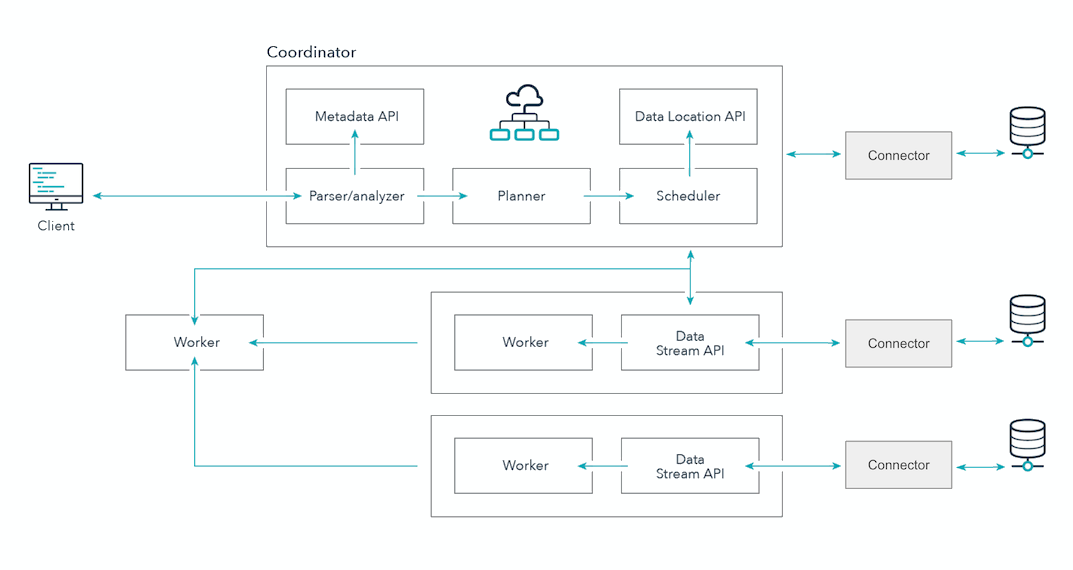Starburst for data platform administrators #
Starburst Enterprise platform (SEP) is a fast, interactive distributed SQL query engine that decouples compute from data storage. SEP lets you query data where it lives, including Hive, Snowflake, MySQL and even proprietary data stores. A single SEP query can combine data from all these data sources and more. SEP can run on-prem as well as in many cloud environments.
SEP can greatly reduce the need for expensive and complex ETL frameworks. Because it uses memory instead of disk to execute queries across the cluster, it’s also fast. It can pull your landing times forward, and help you meet or beat your SLAs. And, SEP has robust access control options for your organization, from integrating with LDAP to using your Ranger-managed policies.
How does this work? #
SEP is a distributed system that runs on COTS hardware. The coordinator parses, analyzes and plans query execution, and then distributes the query plan for processing among worker machines in the cluster. Workers use connectors specific to your data sources, such as Snowflake, Postgres, and Hive to transform queries and return data.
SEP uses ANSI-compliant SQL, and takes care of translating your queries to the correct SQL syntax for your data sources.
SEP’s ability to federate data sources in a single query reduces your organization’s reliance on temporary tables and more complex ETL pipelines. Because SEP query processing works in memory, your disk investment is light.
How do I get started? #
As a first step you should read our guide to choose your Starburst product.
You can spin up a trial instance following the steps in Trying Starburst products.
When you are ready to create a production cluster and you’ve chosen one of our Kubernetes-based deployments, read our handy introduction to SEP with Kubernetes guide. It explains SEP cluster design and sizing, as well as best practices for customization and configuration with Helm.
We also have some great training videos to get you started, and some articles on topics you are likely to have hard questions on:
- Data architecture philosophy and approach
- Reference architectures
- Security guide and deep dive
- SEP and Helm
- SEP administration
Is the information on this page helpful?
Yes
No
Is the information on this page helpful?
Yes
No
